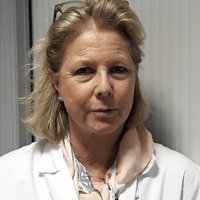Viral Hepatitis
- Duration: 6 weeks
- Effort: 32 hours
- Pace: ~5h15/week
- Languages: English and french
What you will learn
At the end of this course, you will be able to:
- Summarize the virology and pathophysiology of the five differents viruses
- Describe the epidemiology and diseases progression
- Define recent progresses in vaccines and efficient treatments
- Explain why too few people have access to screening and treatments
- Discuss how WHO expects to eradicate viral hepatitis by 2030
Description
Hepatitis is an acute or chronic inflammation of the liver. Viral hepatitis, the world's second leading cause of death from infectious diseases, are very common worldwide, caused by five viruses (A, B, C, D and E). Mortality is mainly related to evolution towards chronicity, leading to liver fibrosis, cirrhosis and ultimately cancer. This occurs mostly for hepatitis B, B-D and C, viruses transmitted by blood and reaching mainly drug users, inmates and men having sex with men.
Viral hepatitis mortality remains high (1.6 million deaths worlwide on 2016) particularly since access to screening, prevention, and efficient medications remains critically low in many developping countries, but not only.
In this MOOC, you will find the latest developments on the structure and pathophysiology of hepatitis viruses, as well as the epidemiology and clinical course of viral hepatitis. You will learn about prevention of hepatitis A and B by vaccination, and about the most recent developments of efficient treatments of hepatitis B and above all hepatitis C. Finally, you will learn about the many public health issues of viral hepatitis and the ambitious WHO target to eradicate viral hepatitis by 2030.
Format
This MOOC is composed of 6 chapters, each module is composed of 2 to 9 sessions. Each session includes a video lasting around ten minutes.
There are two MCQs after each session and a set of MCQs at the end of each chapter, allowing learners to test their understanding. At the end of each chapter, a set of MCQs is offered again. The videos are in English, with subtitles in English and French. The MCQs are in English and French.
Prerequisites
This MOOC is aimed at anyone wishing to learn more about hepatitis viruses, including scientists, medical doctors and other healthcare professionals, government and non-government agencies staff and life science students.
A good level of scientific knowledge is recommended to follow this MOOC (degree in life sciences).
Assessment and certification
To follow this course, you can choose between two options:
- The Discovery Course gives access to videos, quizzes and discussions in the forum. No badge is issued for this course. Registration is free.
- The Qualifying Course leads to a certificate. In addition to the activities of the Discovery Course, you will have to take a one-hour supervised distance learning exam, consisting of 30 multiple-choice questions (MCQs) and obtaining 18 correct answers. The registration fee for the Qualifying Course is 150€.
Successful completion of the Qualifying Course gives you the opportunity to apply for the Institut Pasteur Online Diploma of Infectious Diseases (DNM2IP), which consists of 5 certificates to Institut Pasteur MOOCs on infectious diseases. To learn more, visit the Institut Pasteur's web page dedicated to this diploma.
Course plan
- C1-1: Generalities on hepatitis viruses - Christian Bréchot
C1-2: Natural history of viral hepatitis - Stanislas Pol
C1-3: Evaluation of fibrosis in patients with chronic hepatitis : non invasive tests - Jerome Boursier
C1-4: Viral hepatocarcinogenesis - Pascal Pineau
C1-5: Specific features related to populations and continents - Maud Lemoine
C1-6: Co-infections in patients with viral hepatitis - Karine Lacombe
- C2-1 : Hepatitis A virus : pathophysiology, virological diagnosis and follow-up of HAV infection - Anne-Marie Roque Alfonso
C2-2 : Epidemiology and natural history of hepatitis A - Audrey Coilly
- C3-1: Virology and pathophysiology of hepatitis B virus - Vincent Thibault
C3-2: Hepatitis B infection virological diagnosis - Yusuke Shimakawa
C3-3: Epidemiology of viral hepatitis B - Françoise Lunel-Fabiani
C3-4: Natural history and complications of viral hepatitis B - Vincent Leroy
C3-5: Hepatitis D virus : pathophysiology and virological diagnosis - Françoise Lunel-Fabiani
C3-6: Natural history of hepatitis D - Dominique Roulot
C3-7: Viral hepatitis B in Africa - Muriel Vray
C3-8: Treatment of viral hepatitis B and B-D - Marc Bourlière
C3-9: Vaccination against HBV- Odile Launay
- C4-1: Virology of hepatitis C virus and pathophysiology - Jean-Marie Pawlotsky
C4-2: Epidemiology of viral hepatitis C - Arnaud Fontanet
C4-3: Hepatitis C infection virological diagnosis - Françoise Lunel-Fabiani
C4-4: Natural history and complications of viral hepatitis C - Pierre Nahon
C4-5: Peculiarities of hepatitis C in Asia - Olivier Segeral
C4-6: Treatment of hepatitis C - Patrick Marcellin
C4-7: where are we up to with HCV vaccination ? - Philippe Roingeard
- C5-1: Hepatitis E virus and pathophysiology of infection by HEV - Florence Abravanel
C5-2: Epidemiology, natural history, complications and treatment of viral hepatitis E - Jean-Marie Peron
- C6-1: Viral hepatitis screening - Stéphane Chevalliez
C6-2: Mother-to-child transmission - Gonzague Jourdain
C6-3: Public health issues of hepatitis in developped countries - Gilles Wandeler
C6-4: Management of treated and untreated patients with hepatitis - Lawrence Serfaty
C6-5: HBV cure - Fabien Zoulim
C6-6: HCV elimination - Jeffrey V Lazarus
C6-7: Prioritization of the initiatives for the WHO Elimination program - Yvan Hutin
Course team
Françoise Lunel-Fabiani
Categories
Stanislas Pol
Categories
Dominique Franco
Categories
Stefaniia Ivashchenko
Categories
Organizations
License
License for the course content

Attribution-NonCommercial-NoDerivatives
You are free to:
- Share — copy and redistribute the material in any medium or format
Under the following terms:
- Attribution — You must give appropriate credit, provide a link to the license, and indicate if changes were made. You may do so in any reasonable manner, but not in any way that suggests the licensor endorses you or your use.
- NonCommercial — You may not use the material for commercial purposes.
- NoDerivatives — If you remix, transform, or build upon the material, you may not distribute the modified material.
License for the content created by course participants

Attribution-NonCommercial-NoDerivatives
You are free to:
- Share — copy and redistribute the material in any medium or format
Under the following terms:
- Attribution — You must give appropriate credit, provide a link to the license, and indicate if changes were made. You may do so in any reasonable manner, but not in any way that suggests the licensor endorses you or your use.
- NonCommercial — You may not use the material for commercial purposes.
- NoDerivatives — If you remix, transform, or build upon the material, you may not distribute the modified material.






